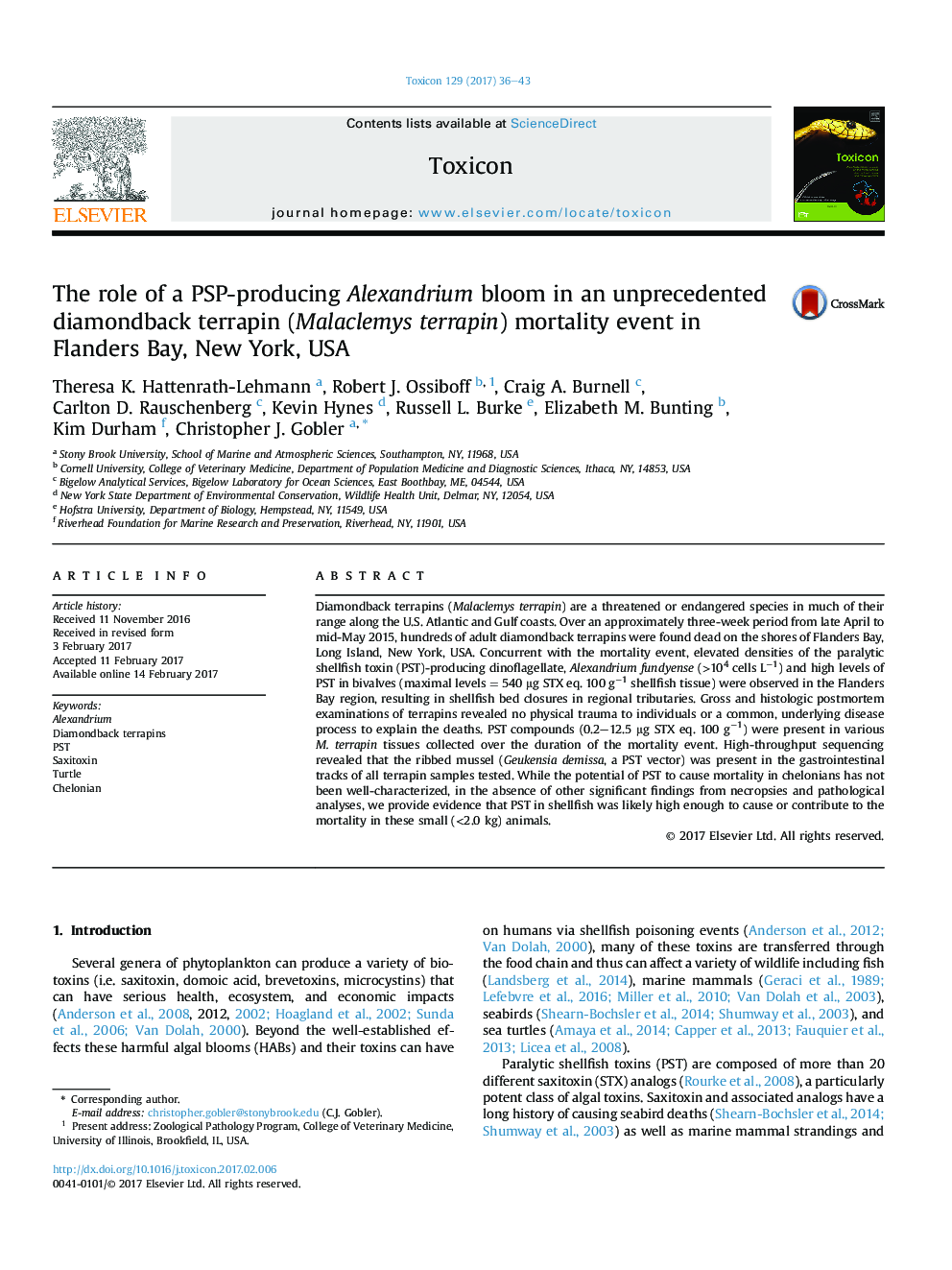| Article ID | Journal | Published Year | Pages | File Type |
|---|---|---|---|---|
| 5519397 | Toxicon | 2017 | 8 Pages |
â¢For the first time, a terrapin mortality event was associated with the saxitoxin producing dinoflagellate, Alexandrium.â¢Saxitoxin was quantified within heart, kidney, liver, and brain tissues of terrapins.â¢High-throughput sequencing of gut contents revealed ribbed mussels as a likely PST vector.â¢Mussels in the region had saxitoxin levels seven-times above US federal closure limits.
Diamondback terrapins (Malaclemys terrapin) are a threatened or endangered species in much of their range along the U.S. Atlantic and Gulf coasts. Over an approximately three-week period from late April to mid-May 2015, hundreds of adult diamondback terrapins were found dead on the shores of Flanders Bay, Long Island, New York, USA. Concurrent with the mortality event, elevated densities of the paralytic shellfish toxin (PST)-producing dinoflagellate, Alexandrium fundyense (>104 cells Lâ1) and high levels of PST in bivalves (maximal levels = 540 μg STX eq. 100 gâ1 shellfish tissue) were observed in the Flanders Bay region, resulting in shellfish bed closures in regional tributaries. Gross and histologic postmortem examinations of terrapins revealed no physical trauma to individuals or a common, underlying disease process to explain the deaths. PST compounds (0.2-12.5 μg STX eq. 100 gâ1) were present in various M. terrapin tissues collected over the duration of the mortality event. High-throughput sequencing revealed that the ribbed mussel (Geukensia demissa, a PST vector) was present in the gastrointestinal tracks of all terrapin samples tested. While the potential of PST to cause mortality in chelonians has not been well-characterized, in the absence of other significant findings from necropsies and pathological analyses, we provide evidence that PST in shellfish was likely high enough to cause or contribute to the mortality in these small (<2.0 kg) animals.
